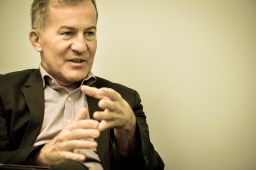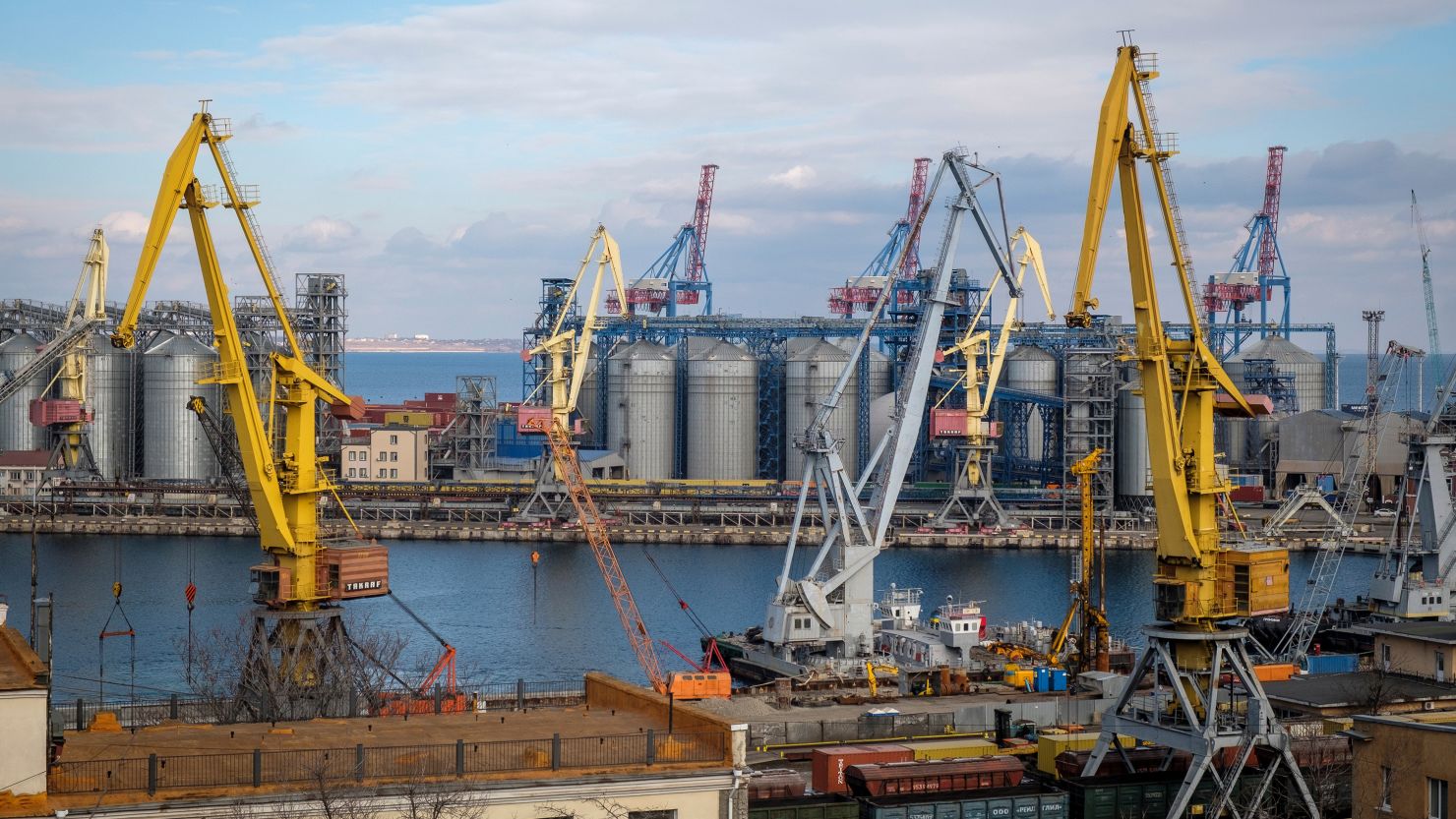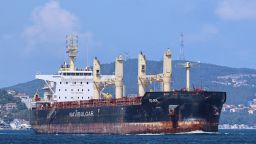Editor’s Note: Michael Bociurkiw (@WorldAffairsPro) is a global affairs analyst. He is a senior fellow at the Atlantic Council and a former spokesperson for the Organization for Security and Cooperation in Europe. He is a regular contributor to CNN Opinion. The opinions expressed in this commentary are his own. View more opinion at CNN.
This time last week, young couples and families could be seen strolling along the winding promenades of Odesa’s harborside Shevchenko Park, marveling at the grain being loaded into huge bulk carriers.

The sprawling port facility on the Black Sea in southern Ukraine is secured by an imposing arrangement of mine fields, barbed wire, tank traps and signs warning against taking photos and videos.
Since August, the port has also been the site of vessels carrying vital Ukrainian grain across the world – thanks to a deal brokered by the United Nations and Turkey that appeared to resolve Russia’s months-long blockade in the Black Sea.
Although the resumption of grain loading at Odesa brought only a fraction of the port back to life, many residents told me in the summer that, with the port being one of the two pillars of the local economy, the sound of moving cranes and lorries was a comforting sign of some sort of return to normalcy after months of war and anxiety.
A lot can change in a few days.
On Saturday, after an attack on Russia’s Black Sea fleet in Sevastopol was blamed on Kyiv, the Kremlin announced it was suspending the so-called Black Sea Grain Initiative (BSGI). However, the UN said Monday that 16 vessels – 12 outbound and four inbound – were due to set sail through the corridor.
The ‘breadbasket of Europe’
With some 50 million people in 45 countries “teetering on the edge of famine,” according to the World Food Programme, the grain deal that put an end to the blockade could not have come soon enough.
It was also meant to bring relief to the Ukrainian agriculture sector, which according to US estimates employs 14% of the population and contributed a whopping $27.8 billion in export revenue in 2021.
Since the agreement went into effect, 380 vessels carrying 8.5 million tons of foodstuffs sailed from the three designated Ukrainian ports to countries in Europe, Asia and Africa, according to Ukrainian officials.
It remains to be seen how Russia’s suspension of the arrangement will be felt around the globe among nations that rely on Ukrainian food supplies.
But with winter looming and with Russian President Vladimir Putin on the back foot with his war in Ukraine, he is showing the traits of a tyrant who wants to make not just Ukraine pay, but also the world, by disrupting this vital food supply chain.
“By suspending participation in the BSGI under false pretenses, Putin only underscores that Russia is an unreliable partner to agreements including ceasefires,” Kristina Hook, assistant professor of conflict management at Kennesaw State University, told me.
She said Russia is “becoming one of the world’s largest orchestrators of civilian-directed suffering,” adding that “Russia’s invasion of Ukraine is not a regional war but a global crisis requiring a global coalition to prevent the weaponization of food from becoming a new norm.”
(Also on Monday, Russia launched another wave of missile strikes across Ukraine, hitting the capital, Kyiv, particularly hard.)
Up until now, the port city of Odesa, which stands at the center of the grain corridor deal, has been left mostly untouched. But no one in the thriving city is under any illusions that Putin will spare it from further destruction. I vividly recall when, just a day after the BSGI deal was inked, a hypersonic missile struck the port, damaging a pumping station, and forcing us to take cover nearby.
No surprise
It was widely expected that Russia would not honor the grain agreement up to the 120-day renewal mark on November 19, especially given its track record for backing away from accords not tilted in its favor.
As part of the Organization for Security and Cooperation’s Special Monitoring Mission to Ukraine, we saw this happen time and again after the illegal Russian occupation of Donetsk and Luhansk in 2014, when one ceasefire after the other was violated.
There were also rumblings from Moscow that its own agricultural exports and fertilizers were not receiving equal treatment under this summer’s corridor deal. (In response, Ukraine said that in recent days some 200 ships were blocked by Moscow from making their deliveries.)
Also, some weeks ago, Russia had started to criticize the deal in the run-up to its scheduled renewal, claiming wealthier Western countries have been the main beneficiaries, particularly Spain. While it is true almost half of exports through the corridor went to high-income countries, about one-third of shipments went to lower-income countries, including Djibouti, Yemen and Somalia, according to the UN Office for the Coordination of Humanitarian Affairs. (After Spain, the main recipients were Turkey, Italy and China.)
The potential collapse of the grain corridor deal would represent a huge slap in the face from Russia to UN Secretary-General Antonio Guterres. He and his most senior officials put a lot of skin in the game to make the deal happen. At the time, Guterres called it “a victory for diplomacy” and one of the most important deals he’s ever been involved in.
Nor will Russia’s suspension of the agreement go over well in Ankara, where Turkish President Recep Tayyip Erdogan devoted considerable time and resources – even offering to host the Joint Coordination Centre in Istanbul.
Erdogan, who faces elections next year amid rising inflation, would have a hard time seeing any upside in the collapse of an initiative that brought immediate food relief to his country.
Another Aleppo on European soil?
Ukrainian President Volodymyr Zelensky was correct when, in response to the collapse of the grain deal, he asked: “Why is it that some handful of individuals somewhere in the Kremlin can decide whether there will be food on the tables of people in Egypt or in Bangladesh?”
The world cannot sit idly by as Russia continues to brazenly weaponize food, potentially threatening the lives of millions of people. What kind of rules-based international order have we created where an autocratic state – Russia – is allowed to bomb the capital of a thriving democracy – Ukraine – repeatedly? Do we want another Aleppo on European soil to stand as a monument to our inability to act?
Western leaders must agree on an immediate response should Russia try to reimpose its military blockade of the Black Sea. Military and policy options should include not only additional crippling sanctions on Putin and his inner circle, but also a process for NATO or UN-flagged flotillas to escort the flow of foodstuffs from Ukrainian ports through this crucial humanitarian maritime corridor.
True, this could potentially place Russian and Western maritime forces face-to-face for the first time since the war commenced in February. But is allowing Russia to commit global hunger terrorism a better option?
Russia should face further isolation through such steps as removing it from the G20, which is having its summit in Indonesia in November.
Russia’s suspension of the grain corridor deal – and the potential, once again, to trigger food shortages worldwide – is a red line no nation should be allowed to cross.





